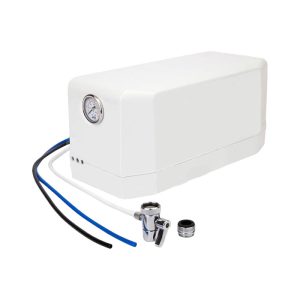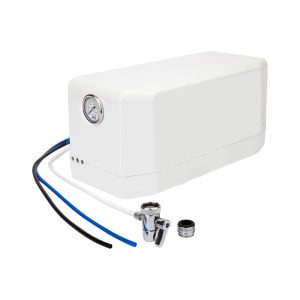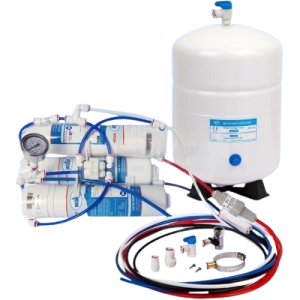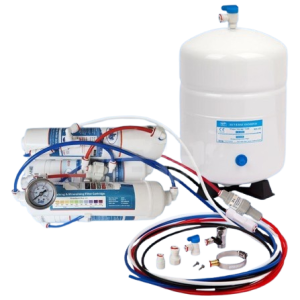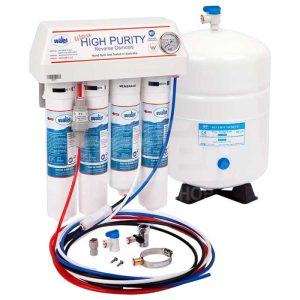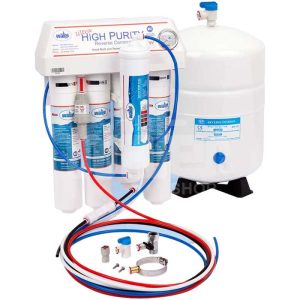Australia's Best
Reverse Osmosis Water Filters
RO Water Filters Australia
Reverse Osmosis Water Filters are one of the most thorough ways to remove a wide range of contaminants from your drinking water — including fluoride, chlorine, heavy metals, PFAS, microplastics, nitrates, and more. It’s a simple, science-backed method that gives you peace of mind and better-tasting water every day.
We know it can feel overwhelming trying to choose the right system. That’s why we only offer carefully selected reverse osmosis filtration systems that we trust and stand behind — systems we’re using in our own homes.
Have questions or not sure which RO system is right for you? We’re here to help.
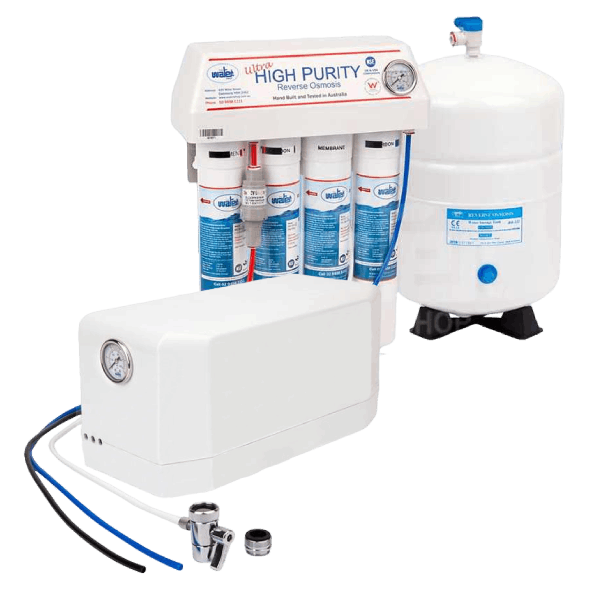
Reverse Osmosis Systems for Complete Confidence
Take the guesswork out of your drinking water with a Reverse Osmosis Water Filter you can trust. Our Undersink RO systems and Reverse Osmosis water filter benchtop models remove fluoride, PFAS, heavy metals, microplastics, and more — giving you ultra-pure, great-tasting water on demand.
Each system is handbuilt and wet-tested in Australia, with NSF-certified components and high-performance filtration. Choose a model with a remineralisation stage if you’d like calcium and magnesium added back in — or go for uncompromising purity.
Clean water shouldn’t be complicated — just reliable, safe, and supportive of your wellbeing.
- Sale!
Countertop Reverse Osmosis Water Filter – 3 Stage
- Countertop Reverse Osmosis, Benchtop Water Filters, Fluoride Water Filters, PFAS Water Filters, Reverse Osmosis Water Filters
-
$409.00Original price was: $409.00.$379.00Current price is: $379.00. inc. GST
Compact Ultra High Purity Under Sink Reverse Osmosis System with Alkaliser – 4 Stage
- Reverse Osmosis Water Filters, Fluoride Water Filters, PFAS Water Filters, Under Sink Reverse Osmosis, Under Sink Water Filters
- $679.00 – $739.00 inc. GST
- This product has multiple variants. The options may be chosen on the product page
Ultra High Purity Under Sink Reverse Osmosis System with Alkaliser – 5 Stage
- Under Sink Reverse Osmosis, Fluoride Water Filters, PFAS Water Filters, Reverse Osmosis Water Filters, Under Sink Water Filters
- $799.00 – $829.00 inc. GST
- This product has multiple variants. The options may be chosen on the product page
RO Water Filter FAQ
What is Reverse Osmosis
Reverse osmosis (RO) is a water purification process that uses a semi-permeable membrane to remove ions, molecules and larger particles from drinking water. It is able to efficiently remove contaminants through the use of an applied pressure gradient across the membrane which forces water molecules to flow through while rejecting most dissolved solids.
In the reverse osmosis process, contaminated water is pressurised and forced through the RO membrane. Water molecules can pass through the microscopic pores of the membrane, but many impurities such as salts, metals, minerals and organics are unable to fit through and are flushed away in the reject stream. The result is that clean, purified water flows through the membrane while contaminants are left behind, leading to a greatly reduced concentration of dissolved solids in the final product water.
Reverse osmosis removes up to 99% of bacteria, viruses, protozoa, organic and inorganic chemicals, making it an effective method of disinfection and contaminant removal. The purified water produced can be used for drinking, food preparation, aquariums, photography applications and industrial processes. Advancements continue to improve RO membrane technology, resulting in increased efficiency and recovery rates. With its ability to desalinate brackish and seawater, RO is also being utilised to provide freshwater in developing countries.
What contaminants does reverse osmosis remove from water?
Reverse osmosis is effective at removing a wide range of impurities, including fluoride, PFAS, bacteria, viruses, dissolved salts, heavy metals, chemicals, pesticides, and sediment. It can also improve the taste and odour of water.
Is reverse osmosis water safe to drink?
Yes, reverse osmosis water is safe to drink. It removes harmful contaminants and provides clean, purified water. However, it’s essential to ensure your system is well-maintained to ensure best performance. If you are at all concerned about the removal of inorganic minerals during the water filtration process, then please choose the option with the alkalisation and mineralisation.
What are the advantages of using a reverse osmosis water filter in my home?
The benefits include improved water quality, better taste, removal of harmful substances, such as lead, PFAS, and chlorine, and reduced reliance on bottled water. It’s also more cost-effective in the long run.
Are there any drawbacks to using reverse osmosis?
RO systems can be wasteful, as they produce a significant amount of wastewater during the filtration process.
Can I install a reverse osmosis system myself, or do I need a professional?
Many RO systems are designed for DIY installation and come with detailed instructions. However, if you’re not comfortable with plumbing, it’s advisable to hire a professional to ensure a proper setup.
Are reverse osmosis systems suitable for bore water or areas with hard water?
Yes, RO systems are effective at treating well water and hard water, but they may require pre-filtration and regular maintenance to handle these specific water conditions.
What should I consider when choosing an RO system for my home?
Factors to consider include water quality, the system’s capacity, filter replacement costs, installation ease, and any additional features like remineralisation options.

